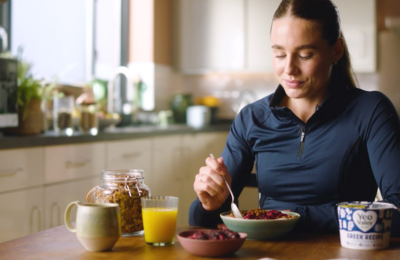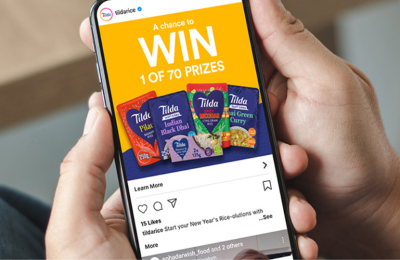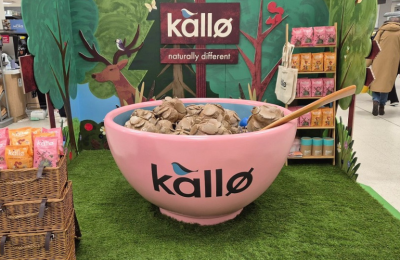Callum Saunders, Head of Planning at ZEAL Creative, shares how brands must cater their products and services to the shopper demand of permissible pleasure.
The world of retail is facing unprecedented challenges. Fuelled by the growth of online pure-players and accelerated by the influx of discounters, never before have shoppers expected so much more for so less. Some of our biggest supermarkets reinforce this overtly: Asda’s ‘Save Money. Live Better.’ positioning, and Sainsbury’s ‘Live well for less’ mantra, just two cases in point.
Is this mentality engrained into every facet of collective shopper behaviour, or are there areas where less is actually becoming more? The rise of conscientious consumption is certainly one area, with shoppers actively looking to reduce their impact on the planet and demanding the change from their retailers.
But it’s in the area of health and wellness where recent attitudinal and behavioural changes suggest that shoppers are inverting this principle. In a world where shoppers are more conscious about what they consume (but want to retain the principles of pleasure), less is most definitely more – and shoppers are willing to pay a premium.
The ‘uncompromising shopper’ in the age of regulated pleasure
We’re making more health-conscious decisions and more informed product choices than we’ve ever done before: given the unparalleled digital content and information we all now have access to, this is hardly surprising. Our society is shifting towards a collective consciousness (if not quite yet responsibility) to take better care not only of the planet, but also ourselves.
The recent government consultation on advertising and promotion of products high in fat, sugar or salt (HFSS) also look set to have a significant impact. And only last year, the government introduced the ‘Sugar Tax’ as part of its childhood obesity strategy.
When it comes to food and wellness, the onus to make better choices is louder than ever before and indeed, any initiative that improves the general health of the nation is to be lauded. But it’s also important to note that responsible – and therein lies the key word – pleasure should not be demonised through a blanket ‘scattergun approach’ to complex issues.
The soft drinks brand Cawston Press offers an interesting counter-viewpoint in “a world that has gone ‘zero’ mad’”, stating that calories are ‘maligned and misunderstood’. It frames the natural nature of its own calories as an example of what I like to label the ‘positive permissive’ – a positioning that is at once interesting and insightful.
And of course, there’s the oft-quoted insight that when times are down, sales of confectionery go up. Given the turbulent political times in which we live, one could be forgiven for assuming that confectionery sales are at an all-time high. But the increasing regulation of pleasure should not mean the restriction of choice.
We’re entering the era of the ‘uncompromising shopper’: shoppers who want to make better, positive choices for themselves, but without feeling as if they are compromising on convenience, health, taste or enjoyment.
Less really is more: winning with shoppers (and paying a premium for the pleasure)
We’re now seeing an influx of brands and products that cater to the shopper need for ‘permissible pleasure’.
Ever self-regulating, the soft drinks industry has been ahead of this curve for quite some time now. In the German market, Coca Cola offers ‘Mini-Dosen’ cans. At only 150ml, these are regular Coke drinks, but in a size that offers a mini size, but maximum refreshment.’ A permissive way for more health-conscious consumers to enjoy a Coca Cola, without feeling as if they have had to compromise.
Think about ‘Pret Slim’, the unique format that literally offers shoppers half the sandwich. Or products such as Magnum Mini, marketed as ‘full Magnum pleasure in a smaller size’. These are not positioned as ‘health’ products, yet they inherently allow shoppers to buy into more health-conscious occasions.
We’re even seeing this in the beers, wine and spirits category. Like many wines, New Zealand brand ‘Mud House’ has recently introduced new 50cl bottles alongside its standard 75cl format.
Accompanying shopper communications on neck collars directly call out the benefit, ‘perfect for occasions when you just want to share two large glasses of wine and no more’. By no means is this a ‘healthy wine’: but it’s a smart product format and clever piece of communications that gives shoppers an option of more permissible pleasure.
And from a commercial perspective, it appears that shoppers are willing to pay more for the privilege. Think about the miniature chocolates on the counter of every coffee shop in the land: a permissive way to enjoy a chocolate hit, at a premium price point.
**
Enjoying something pleasurable is not a negative thing. After all, human beings are neurologically wired to both seek out pleasure (releasing dopamine) and, subsequently, enjoy it (opiates).
But in this new age of the uncompromising shopper, pleasure needs to be permissible: FMCG brands that can provide this sweet spot stand to make significant penetration gains with those who share this emerging shopper attitude.
Less certainly is more, both in terms of what it offers shoppers, and the price that they are willing to pay. In a world where many categories are experiencing a growth in volume but a decline in value, permissible pleasure could be a very welcome commercial strategy indeed.
To find out more about ZEAL Creative, get in touch with Callum Saunders at callum@zealcreative.com






















